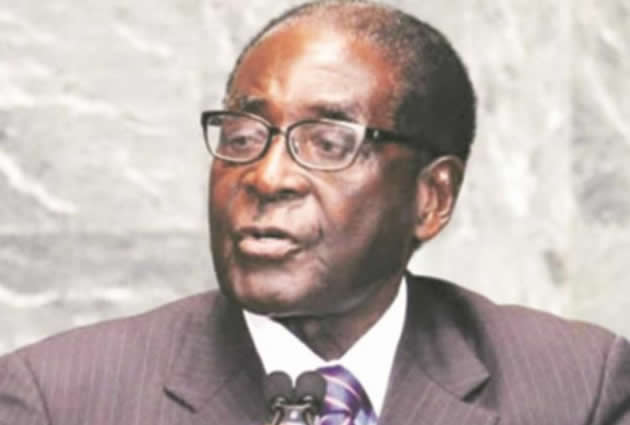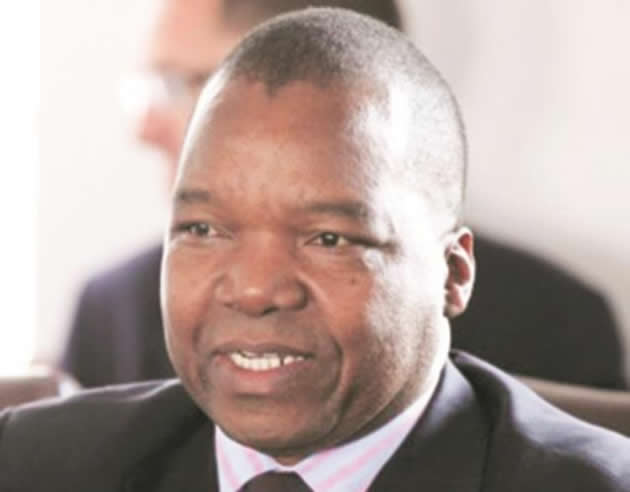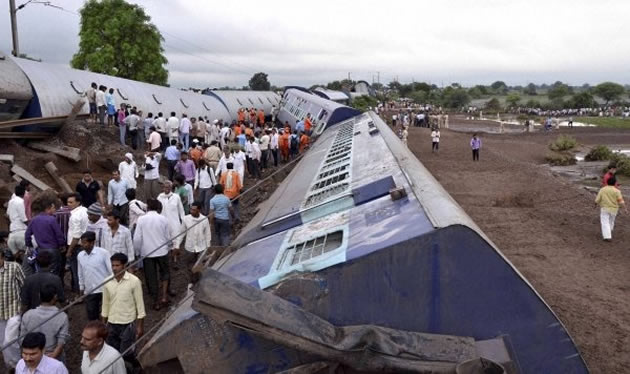Zanu-PF: Reform and legacy

Reason Wafawarova On Thursday
FROM purely the point of view of progression, it is important that Zanu-PF transforms itself in line with the needs of today, and this transformation touches on the party’s internal democracy, inasmuch as it does on its modus operandi, its policy thrust, as well as on prioritisation.
The relationship between the Zanu-PF leadership and its members tends to be a “them and us” state of affairs, and if the party is going to modernise itself into a political outfit with an appeal to the post-war generation, then there might be a need to look at power relations between supporters and leadership, or is it members and leaders?
The monolithic structure of the party cannot reliably hinge just on the impressive legacy of President Mugabe.
The party must base its unity in ideology, and the sooner the party realises that deep under the legacy and power of President Mugabe lies ideology and principle the better for the party’s future.
Loyalty to the values of the party must be upheld, but loyalty in itself cannot be justifiably rewarded with leadership positions, or any other privileges purely awarded on the basis of loyalty for its own sake.
In politics merit matters, and loyalty in its own right cannot be a substitute for merit.
The jeopardous attitude that says leadership in Zanu-PF comes with material benefits and preferential treatment is not helpful to the underlying principles of the party; not least its people-empowerment policies.
We have a Government in place, yet we hear of unscrupulous party officials who in the name of party leadership establish parallel administrative projects like housing schemes, and the projects sometimes flourish illegally without any form of intervention from government.
We only get to hear of such extra-state activities when there is trouble; like when people have been fleeced of their hard earned cash fraudulently, or when the housing project is deemed illegally constructed, and is facing demolition.
As a party of liberation, Zanu-PF has always taken seriously the potential dangers of the external enemy, and that is why traditionally the party has always preferred a centralised power structure, and even a secretive modus operandi.
This is what some ill-intended miscreants have often taken advantage of to engage in corrupt activities, or to manipulate their way up the political ranks at the expense of more meritorious candidates, many of whom have been caught up in spirited mudslinging trivia, sadly dangerous enough to end political careers.
Zanu-PF needs more than ever to realise the need for transformation.
Without the identity of a modern party, it is just impossible to imagine any other way the party can appeal to the adult of the 21st Century.
By 2018 a child born at the beginning of this century will be voting, and that child’s expectations from a political party are different from the expectations of an adult that was brought up under colonialism, like myself.
While Zimbabwe is a sovereign country, we cannot envisage a scenario where we breed our own sovereign breed of democracy, purely shaped by the marvellous thinking of our leadership, and unshakably grounded only in the irreplaceable values of our liberation struggle.
That would be good for Zanu-PF if that could be achieved. But no one is born to live in the past. Generations live their own times, and the role of the politician in anyone’s life is to meet the needs of the people, not define or prescribe them.
When we tell our young people that the Blair government bit our hand of reconciliation when it reneged on pre-independence commitments in regards to land redistribution, the point might be understood, or even accepted.
But when we extend that argument to saying the reneging of a government in Britain on the important issue of land redistribution in our country is why we do not have jobs for you, or why the hospital near your house has no medicine, we begin to confuse the young minds.
A Zanu-PF Government that was building schools, hospitals, clinics, and bridges, constructing roads, expanding cities, providing freed primary school education, and providing clean drinking water to the people, governed my high school generation.
Our teachers were proud middle class citizens, and so were our nurses, our police force was reputable and respectable, and our newspapers published exceptional achievements in politics, sports, arts, education and so on — creating in us a growing sense of ambition and aspiration.
We did not grow up reading about the bickering of warring politicians, or reading about airheaded leadership in the administration of our football.
We had an eloquent government leader we so much prided in, and when Witness Mangwende, Dzingai Mutumbuka and Kumbirai Kangai visited my high school in Masvingo as ex-students, we admired them as heroes we all wanted to emulate.
Even the Clerk of Parliament Kennedy Chokuda would testify on how we all could not wait to see these indisputable national heroes each time we had the Old Students Day.
Never mind the bombings from apartheid South Africa at the time, or our own internal instability of the eighties, we still had a government that gave us hope as young people, and this what Zanu-PF must seek to do with the young people of today.
We cannot build hope in our young people by playing the victim in international politics all the time. If anything we have proudly won the land redistribution war, and it must be the other side that must be seen to be smarting from the irreversible defeat.
Tony Blair, John Howard, Gordon Brown and George W. Bush all went into retirement in defeat, when it comes to the diplomatic war with Zimbabwe. They are oblivion characters in the politics of today.
The current leadership in Britain, Canada, New Zealand, and Australia is in silence over Zimbabwe, save for special moments like when we lose one of our iconic lions to some professional poacher, sorry, hunter.
It is given that Obama has been vacuously vocal over Zimbabwe, but that must be seen in the context of Washington arrogance, and not be used as a tool to save the faces of failing politicians.
In simple terms, Zanu-PF must refocus on building the nation, and focus less on the dramas in international affairs.
We cannot satisfy ourselves in the raising of a generation whose only idea of a successful government is the defeating of a Western-sponsored opposition.
There is more in nation building than winning international political wars, or even winning elections at home.
There is no second-guessing on the cost of our fallout with the West, especially in regards to the ruinous effects of the illegal economic sanctions arbitrarily imposed by the West on Zimbabwe.
Apart from lazy watching and gallery-lamenting over the monstrous immorality of the sanctions ruin, the Zanu-PF leadership has done very little in mitigating the damage, and that is precisely why the economy went right into the abyss in 2008, almost knocking the liberation party out of government, with the now evidently clueless MDC almost securing the picking of the pieces.
The cost of the diplomatic conflict between Zimbabwe and the West on the part of Zimbabweans cannot be described as in-consequent.
The country lost most of the developmental cooperation it had secured over the years, especially with its traditional trading partners in the West.
This period had a significant impact on Zanu-PF’s modus operandi, as well as on its credo and ideological standing.
The internal democracy of Zanu-PF almost reverted to wartime status, and only the ideologically significant became relevant for the leadership of the party, sidelining technocrats and other experts in the process.
We saw war veterans crawling back into active politics, the military pronouncing high alert vigilance against the threat posed by Western meddling, and of course patriotism and the defence of the motherland overrode politicking on developmental policy, or the ever rising human rights rhetoric.
But Zanu-PF must quickly realise that it cannot forever depend on the Commissariat Department and its structures to attract votes.
Most winning parties in democracies rely not only on ideology, but also on policies for votes, and this is the only way the party can consolidate its electoral power base.
The war mood with the West has evaporated and gone, and Zanu-PF must give to this generation something more than the articulation of the West’s ruthlessness.
Failure to deliver will breed a generation whose prime aspiration is to be different from a system they see as failing.
That is just a natural reaction, and it has nothing to do with the people involved being unpatriotic.
Our student leadership in tertiary education used to seek ways of linking with Zanu-PF before 1995, and that was purely because in this party they saw opportunity for political career progression.
Then came the MDC, and it had its chance with the same students.
Now that the MDC has proven its intellectual poverty beyond any measure of doubt, the students have departed, and they seem to be confused as to whom they should align with at the moment.
Young people do not want to rise at the pleasure of a manipulating leadership.
They want to experiment and shine, and when they turn to both Zanu-PF and the MDC they are confronted with manipulated party structures that reward blind loyalty ahead of merit. That is not encouraging.
The living conditions of our people are petrifyingly unnerving, job opportunities are scarce, and the consequential societal ills become far too many to mention.
These challenges require a paradigm shift in the thought processes of the country’s leadership. We cannot keep pretending that governing a country is measured by the capacity of Zanu-PF to win elections.
Ruling is about successful governance, not about winning polls.
What Zanu-PF needs at the moment is a pragmatic and visionary leadership, and of course vision and continuity are twins that can never be separated.
No doubt President Mugabe is a visionary who has successfully played his part, but surely he needs visionary partners to run with his vision.
To avoid fossilisation, the party needs to actively inject youthful personnel in its leadership structures, and there must be no apologies for this kind of argument.
It remains a mystery how Webster Shamu once managed to smuggle into the Politburo election guidelines that said for anyone to qualify for nomination as a candidate for Zanu-PF’s Central Committee, that person needed 20 years of card-carrying membership. So serious was Shamu that the criterion was even used for elections at the Women’s Conference leading to the party’s 6th Congress.
If we are going to have 25-year-old leaders in our leadership, and we live in Shamu’s world, then we must ensure kids start getting Zanu-PF cards at the age of 3 or 4, so they can qualify to compete for political office by the time they turn 25.
Zanu-PF must refocus on grooming young leadership, if its legacy is to escape the disastrous fate of parties like KANU in Kenya and UNIP in Zambia.
Zimbabwe we are one and together we will overcome. It is homeland or death
· Reason Wafawarova is a political writer based in SYDNEY, Australia










Comments